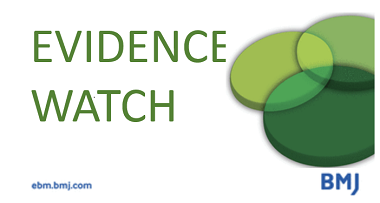Do patients with resolved AF have a higher risk of strokes, asks Jack O’Sullivan
Patients with Atrial Fibrillation (AF) are five times more likely to have a stroke than patients without AF. AF can be reversed (sinus rhythm restored) via catheter ablation or cardioversion (either electrical or chemical). Patients can also spontaneously revert to sinus rhythm.
Despite it being the most common cardiac arrhythmia, it is unclear if patients with resolved AF (from AF back into sinus rhythm) are still at greater risk of stroke.
A recent study addressed this previously unanswered question: do patients with resolved AF have a higher risk of strokes, transient ischaemic attacks (TIAs) and all-cause mortality compared with a) patients with unresolved atrial fibrillation and b) patients that have never had atrial fibrillation.
What did the study authors do?
Electronic health record data from UK General Practice were examined. Data were extracted from The Health Improvement Network (THIN) database. Data for adult patients with codes for either a) Unresolved AF, b) resolved AF or c) never been diagnosed with AF were assessed. The records of these patients were retrospectively analysed to determine their respective rates of stroke, TIA and death. Statistical analysis controlled for differences in comorbidities, age, sex, BMI, smoking status, alcohol consumption, and statin and anticoagulation prescription.
What did they find?
The authors report that patients with resolved AF had lower rates of stroke or TIA than patients with unresolved AF (rate ratio 0.76 (95%CI: 0.67 to 0.85)). However, they report patients with resolved AF had higher rates of stroke and TIA than patients who had never had AF (rate ratio 1.63 (95%CI: 1.46 to 1.83)). These results followed the same direction for mortality, but the effect size was smaller:
- Mortality rate ratio: resolved AF vs. unresolved AF: 0.60 (95%:0.56 to 0.65)
- Mortality rate ratio resolved AF vs. patient who had never had AF: 1.13 (1.06 to 1.21)
Implications for clinical practice?
Currently, NICE does not offer any clear recommendations on the anticoagulation treatment of patients with resolved AF. European, Canadian and US guidelines also do not offer any guidance on whether to offer patients with resolved AF anticoagulation. This study’s results suggest that these patients may benefit from treatment. The paper’s conclusion emphases this: “Guidelines should be updated to advocate continued use of anticoagulants in patients with resolved atrial fibrillation.”
More from BMJ EBM
- Atrial fibrillation and warfarin Response Evidence-Based Medicine
- Review: antithrombotic agents prevent stroke in non-valvular atrial fibrillation FREE Evidence-Based Medicine
Read more about BMJ EBM content in the Welcome to BMJ Evidence-Based Medicine Editorial
Jack O’Sullivan, Editorial Registrar BMJ EBM, Dr & DPhil Candidate at the University of Oxford
Conflict of interest: My DPhil (PhD) is funded by the Clarendon Fund, University of Oxford. I also receive income from Oxford University Hospitals for clinical work and hold grants from the National Institute for Health Research and the Primary Care Research Trust.
